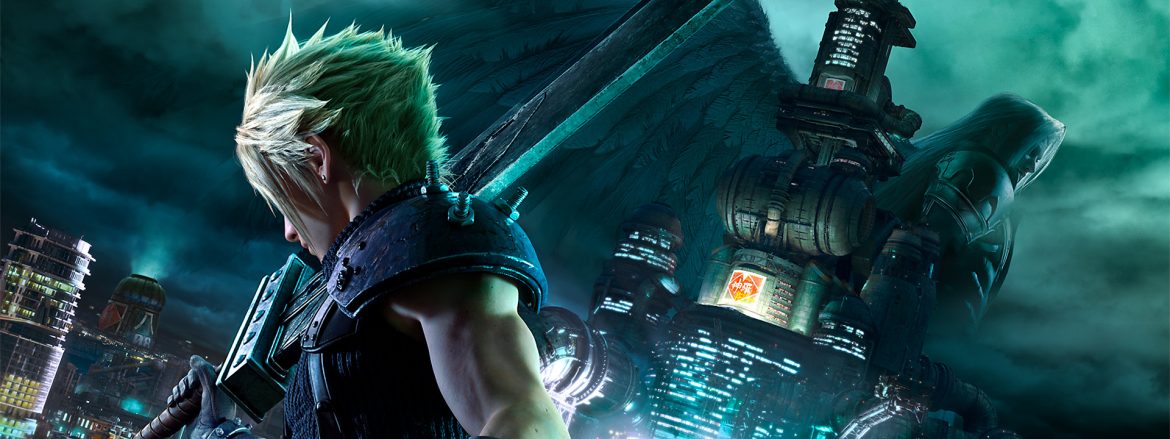TL;DR
Finally, after years of waiting, Final Fantasy VII Remake is here, and it's a phenomenal, near-perfect reimagining of the beloved classic. This isn't just a graphical upgrade; it’s a complete overhaul that masterfully blends action-oriented combat with strategic ATB elements, bringing a 23-year-old story to stunning modern life. While the game is a substantial 30+ hour experience, it's only the first part of a multi-part saga, so don't expect a full conclusion. Despite minor texture inconsistencies and the lack of a pure turn-based option, the graphics, sound, and storytelling are exceptional. Dive into this incredible remake – you won't regret it.
Ever since Sony and Square Enix unveiled an impressive, pre-rendered trailer at E3 2015, anticipation and speculation surrounding a Final Fantasy VII remake have been constant (not to mention the PS3 intro remake showcased in 2005). Could the visual fidelity of those early sequences be maintained? Would the game ever see release? And would it remain a Playstation 5 title? The answers are: yes, yes, and no. Final Fantasy VII Remake is finally here, and the result is a masterful achievement.
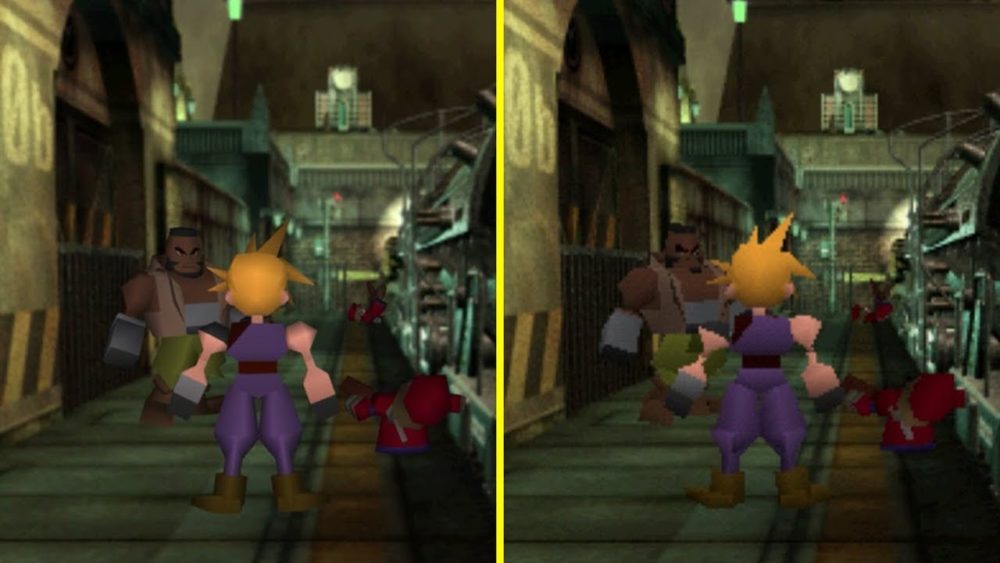
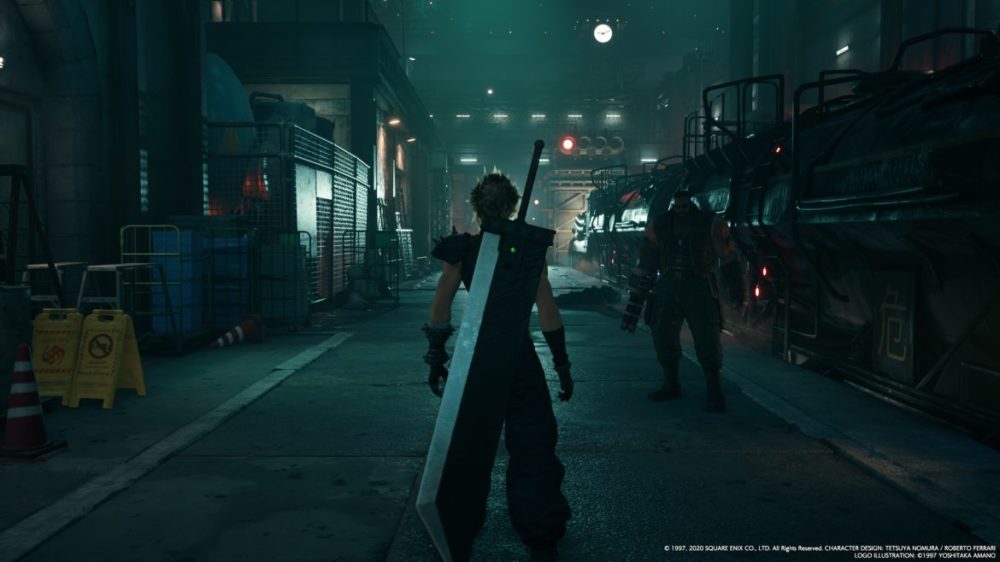
For those unfamiliar with the gaming landscape of the 1990s, it’s difficult to convey the groundbreaking impact of Final Fantasy VII upon its release in 1997. While studying film at the University of Skövde, I recall a classmate dedicating his thesis to Final Fantasy VII, arguing that video games were taking “massive steps towards film’s narrative” capabilities. This was during a period when Square’s Final Fantasy series held a more niche appeal, primarily within Japan. My friend had imported the game (with English text) to play on his Playstation. He passionately described the intricate story, compelling character development, and cinematic storytelling achieved through sound and visuals – concepts that seemed almost revolutionary compared to the prevailing platformers and the early Tomb Raider titles that dominated mainstream gaming. While I didn’t own a Playstation at the time, I possessed a capable Pentium PC equipped with a 3Dfx graphics card. Consequently, the following year, while attending theater school in Gothenburg, I purchased the PC version as a form of evening entertainment. I found myself eagerly anticipating the end of the school day to immerse myself in the captivating world that Hironobu Sakaguchi had created. This sentiment was widely shared; Final Fantasy VII marked a significant breakthrough for Japanese role-playing games in the Western market, establishing the J-RPG genre, which boasts a wealth of exceptional titles today.
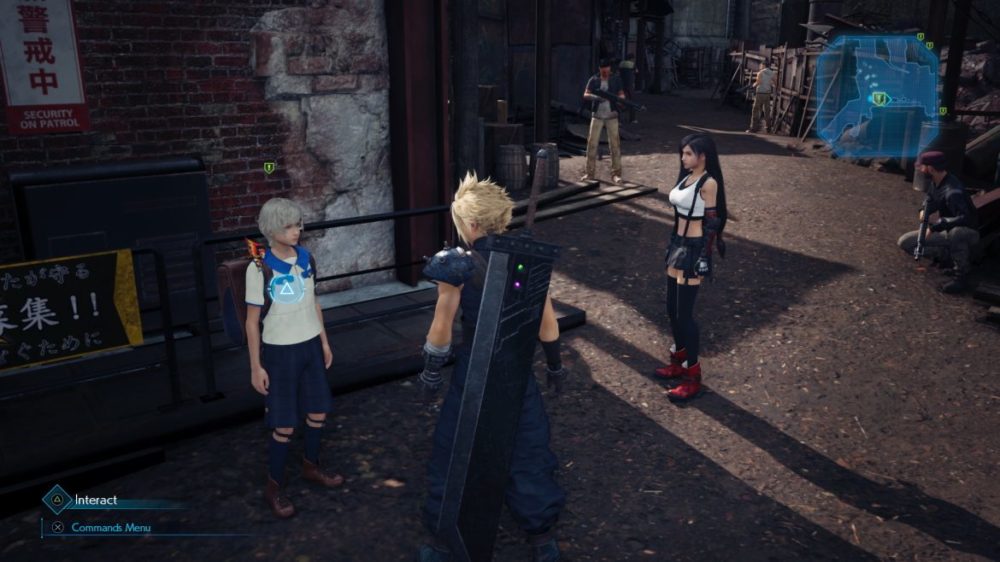
Final Fantasy VII Remake is a true remake in every sense of the word. Beyond the foundational story and characters, it’s essentially a completely new game. While longtime fans will undoubtedly appreciate the familiar locations and names, prior experience with the original is unnecessary to become engrossed in this reimagined experience. Admittedly, my recollections of the original game from 22 years ago (an eternity in gaming) are limited to strong individual scenes and a general sense of wonder. I likely invested around 40 hours into the original, completing as much as possible – a significant playtime for that era, when games typically ranged from a few to a few dozen hours. The concept of central characters facing mortality was a shocking and impactful narrative element, foreshadowing the storytelling style of Game of Thrones.
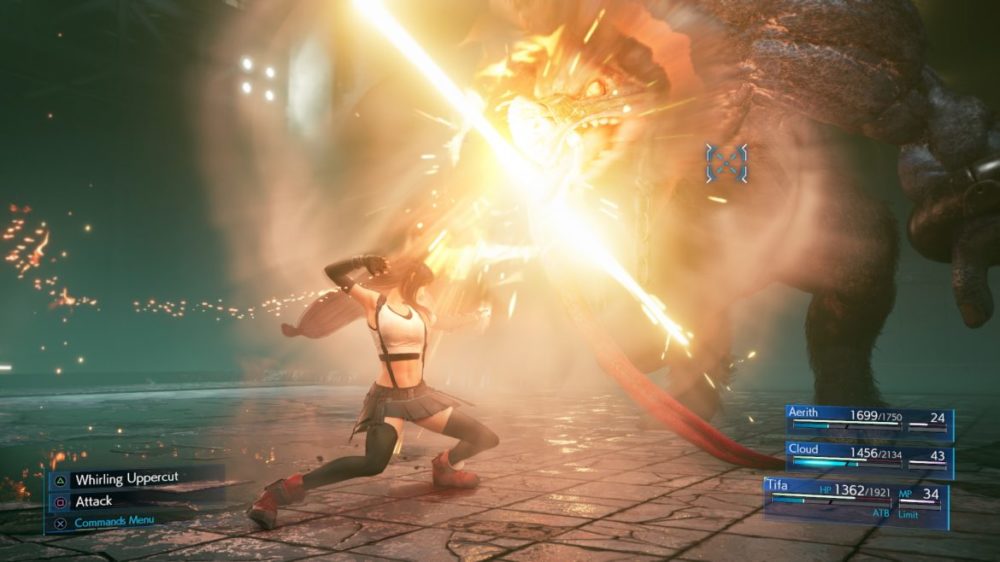
The narrative centers on Cloud Strife, an ex-SOLDIER operative and stylish mercenary, who becomes involved with Avalanche, an eco-terrorist group branded as such by the Shinra Electric Power Company, which seeks to exploit the planet’s Mako energy. Following a bombing of a Mako reactor in Midgar – a city divided into a stratified society reminiscent of Mortal Engines / Alita, with an upper class residing on a plate above a sprawling, technologically advanced slum – a complex and compelling story unfolds. Cloud forges new friendships, rekindles old flames, and confronts painful memories tied to his past and the enigmatic antagonist, Sephiroth (those familiar with Kabbalah may recognize certain thematic elements).
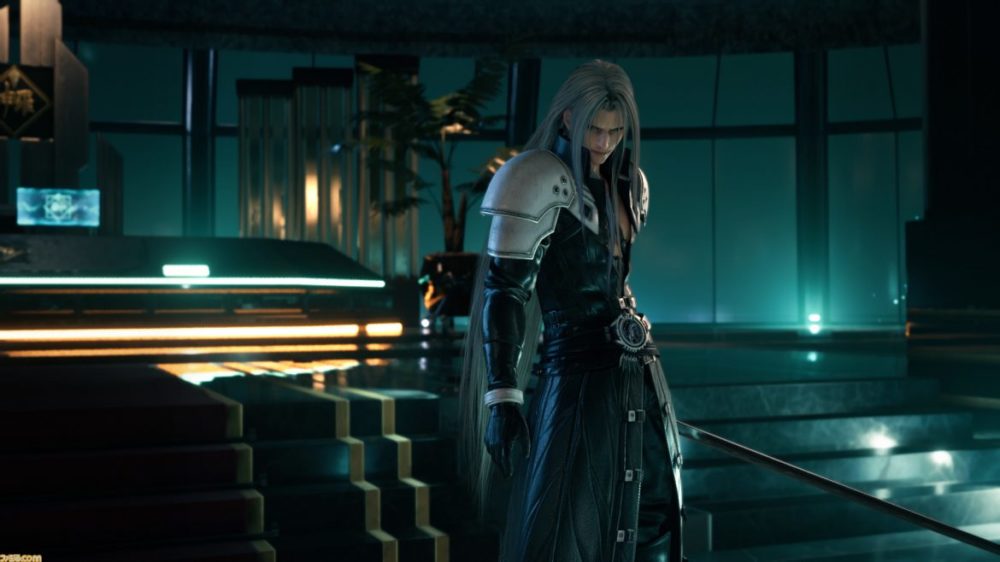
The original Final Fantasy VII introduced several now-commonplace elements within Japanese role-playing games: turn-based battles, an EXP-based leveling system (adopted by countless games since), and inventories for managing equipment and augmenting weapons and armor with materia. Final Fantasy VII also featured summons, allowing players to call upon powerful allies through elaborate animations that, while initially impressive, became repetitive over time.
Final Fantasy VII Remake retains the core elements of the original while refining, adjusting, and, in some instances, overhauling the gameplay. Combat has been adapted for a more action-oriented approach, similar to that of Final Fantasy XV. Players can opt for a streamlined “Easy” mode or the “Classic” mode, which automates attacks and blocks, allowing players to focus on magic, limit breaks, and summons. A purely turn-based option would have been a welcome addition. The action-oriented adaptation functions adequately and becomes more intuitive with extended play, although the camera can occasionally be cumbersome, and dodging and blocking may lack the precision of the strategic turn-based system. The ATB (Active Time Battle) system, which governs the use of magic and items, creates a hybrid gameplay experience that blends action and strategy (time pauses when activating this mode). This hybrid system is generally effective, although some inconsistencies remain (for instance, the inability to change materia during battles after analyzing enemy weaknesses).
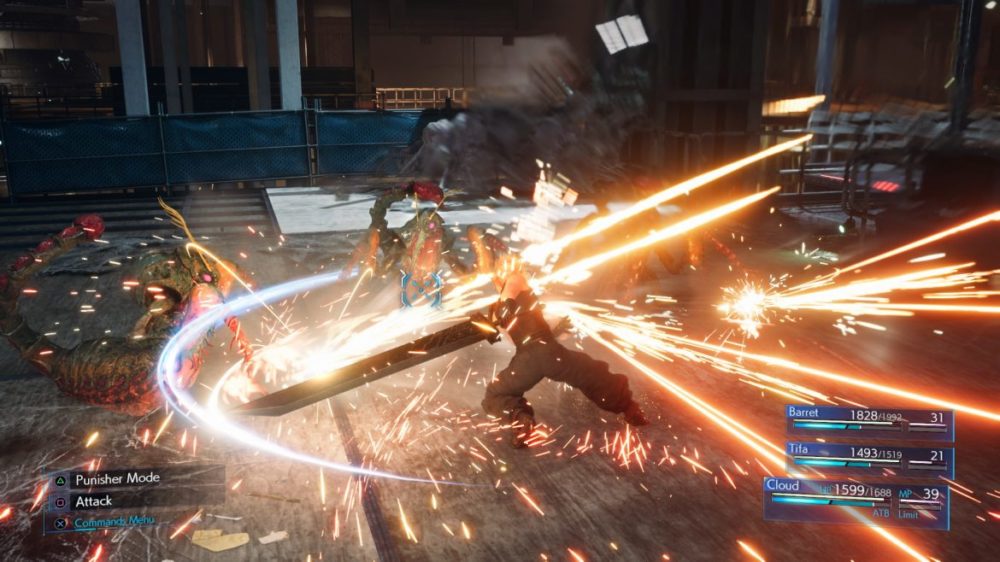
The summon system has also been revised. The lengthy intro animation is shown only once, after which the summoned entity appears on the battlefield as a large, AI-controlled combatant, which the player can direct by expending the team’s shared ATB meter.
Final Fantasy VII Remake – Graphics and sound
Final Fantasy VII elevated in-game storytelling through its script, three-dimensional characters (with flaws, dreams, mental health issues, anger, mortality, and desires), and groundbreaking audio-visual presentation. It featured cinematic sequences, well-composed scenes, and a full-scale orchestral score by Nobuo Uematsu. Final Fantasy VII Remake brings the narrative into the 2020s with exceptional production values. The graphics, powered by Unreal Engine 4, are generally outstanding, particularly on the PS4 Pro, which benefits from increased resolution and detail. Facial expressions, eye detail, lighting (with HDR support), and animations rival those of high-budget animated films. However, some textures on objects and backgrounds (stones, sacks, and certain doors) appear simplistic, reminiscent of older games or low-resolution assets that haven’t loaded correctly (this issue is mitigated by installing the game on an SSD). These inconsistencies are minor and require close scrutiny to detect. Overall, Final Fantasy VII Remake lives up to the visual expectations set by Sony and Square Enix five years ago. The resolution is approximately 1440p on PS4 Pro, and the frame rate is consistently high, with only occasional dips below 30 fps. The extra month of development time was well spent. Owners of the base PS4 can expect a stable 1080p resolution and a consistent 30 fps frame rate.
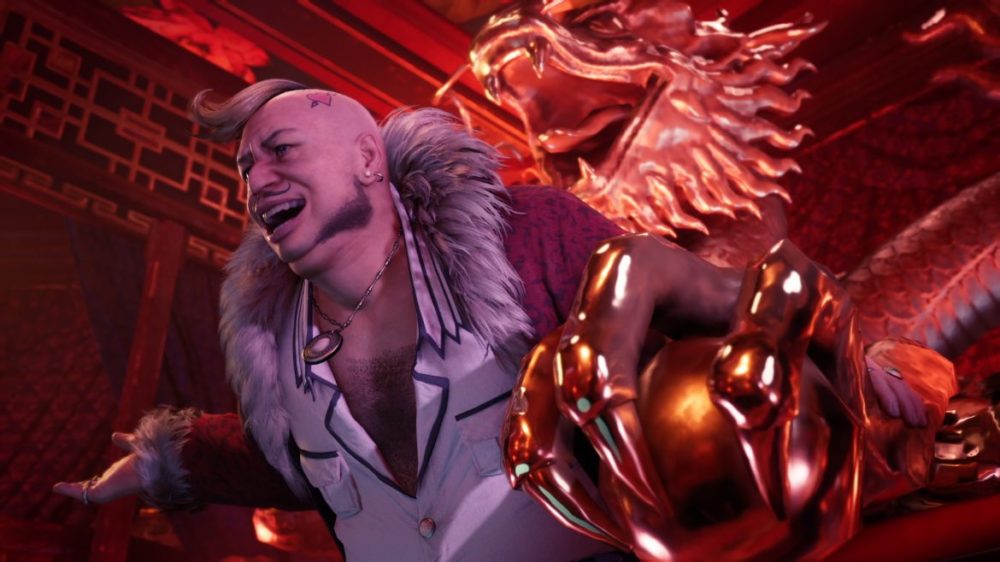
The sound design is equally impressive. Nobuo Uematsu’s score has been updated, and while it may not be cutting-edge, the voice acting is excellent, and the audio mixing is superb. Sound details and panning effects move seamlessly between speakers, making this a game best experienced in a home theater setup with a high-quality OLED TV with HDR and a robust sound system. While I hesitate to use the cliché of a “playable movie,” it’s not far off the mark.
Final Fantasy VII Remake – a story in several parts
Final Fantasy VII Remake is a substantial game offering at least 30 hours of gameplay if you undertake all the side quests (which are recommended, despite slightly slowing the pace near the end). However, it’s crucial to understand that this is only one part of the complete Final Fantasy VII narrative. The release schedule and number of subsequent installments remain unknown. It’s highly probable that the next installment will be on Playstation 5 (potentially with an enhanced version of this first part, addressing the texture issues). We can only hope that there is a clear, long-term plan to prevent this project from becoming another Shenmue, whose future roadmap is unclear.
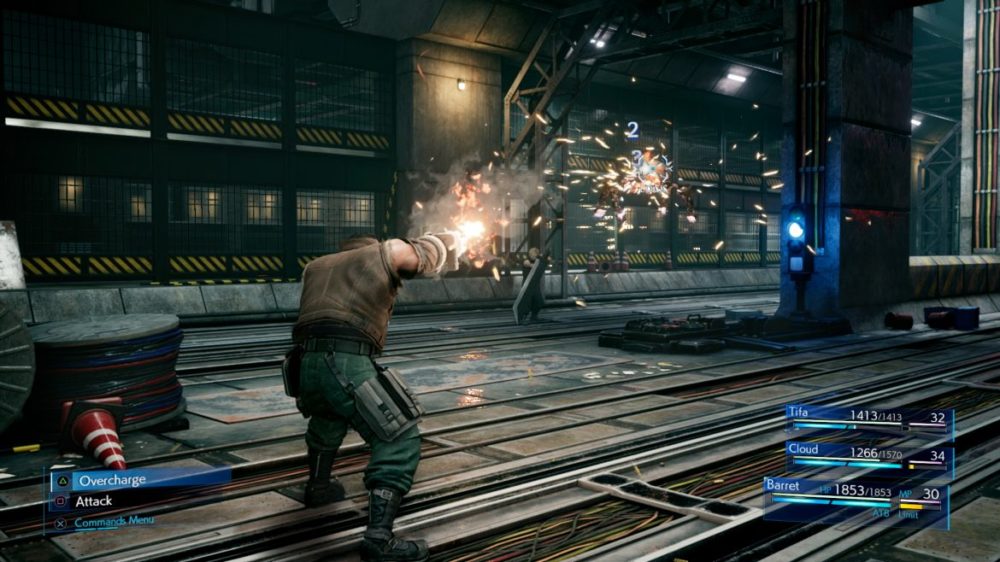
While this deeper dive into each story element offers new storylines, it comes with the caveat that a definitive conclusion is absent in this initial installment. The story will unfold over two, three (most likely), or perhaps even five more parts, with potentially lengthy waits between each release. However, this shouldn’t deter anyone from purchasing Final Fantasy VII Remake. Allow yourself to be captivated by this exceptionally well-crafted game. Even if the total cost for the entire episodic adventure exceeds that of other games, this is a unique experience that delivers substantial value as a standalone title and undoubtedly justifies its full price.
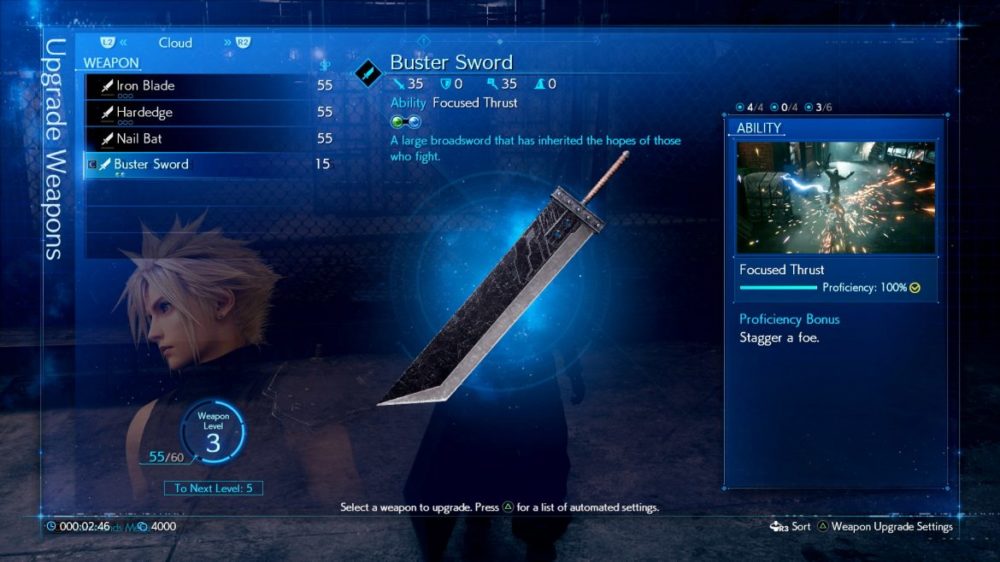
I have fond memories of the original Final Fantasy VII. I wholeheartedly recommend Final Fantasy VII Remake to all, regardless of prior experience with the game or series. While not perfect, it comes remarkably close. 2020 may have already delivered its best game. While awaiting the next installment, consider revisiting the original in its HD version. I eagerly anticipate the next chapter.
